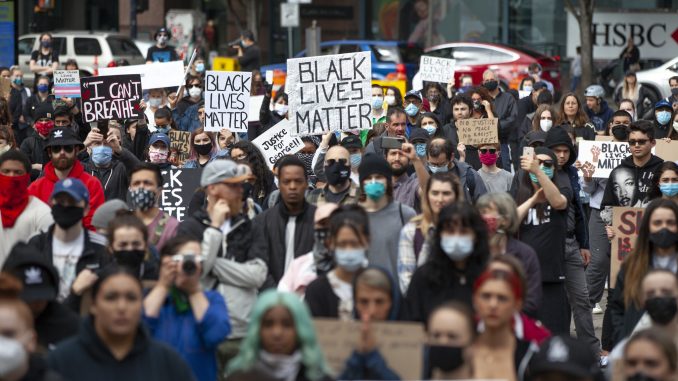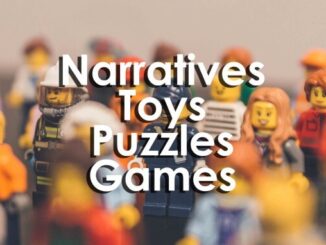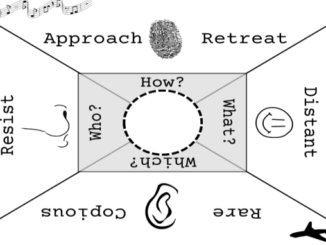
The events of this year have provided us with plenty of examples of both the best and worst of human behaviour. The way that communities rallied round to help the most vulnerable when the virus started to take hold and we went into lockdown, showed how we are capable of inventive solutions and acting unselfishly for the good of others. Videos of shoppers pushing the elderly and infirm out of the way to get to the last few toilet rolls in the shop, were less edifying however.
Following the death of George Floyd, the groundswell of feeling showed similar extremes. While many people showed their solidarity with Black Lives Matter, and sought to educate themselves about the history and effects of racism, others took to social media to defend the status quo, rehashing the old stereotypes and myths.
I’ve had an interest in creating prosocial games ever since I became a games-based learning professional and recent events have really galvanised my intent to make a learning game around racism. For details of how I actually want to go about creating this particular game, see the end of this article. But first I want to explore some of the questions which have come up for me whilst thinking about this game.
Imposter syndrome
Like a lot of people, I’ve been reading round the topic, a lot! But the more I read the less I felt I knew. I realised that what had seemed to me to be relatively simple, for example, the causes of racism in individuals, was in fact incredibly nuanced and complex. And that was just one aspect of the learning I was embarking upon.
The depth of my ignorance weighed heavily on me and I wondered if I would be capable of, or even had the right to be, creating a game, which after all is about someone else’s lived experience and struggle. But then someone said something (or wrote it, I’m ashamed to say I don’t remember where I heard or saw this). She said ‘Black people should not be doing all the work on this.’ And I realised it should be the work of white people, like myself, to find ways to become part of the solution.
So, my game should focus on helping white people to recognise aspects of their own actions and beliefs, which reinforce stereotypes, which support and perpetuate privilege, and which undervalue the contribution of ‘the other’.
White Fragility
All of which brings me very neatly to the next ‘thinking roadblock’ I encountered, which is dealt with very eloquently in Robin DiAngelo’s book ‘White Fragility’. Although games are often touted as ‘safe spaces’ in which to experiment and to explore even quite contentious issues, asking people to consider that their thoughts and actions might be ‘racist’ is probably going to make for a very bumpy ride.

For many of us who see ourselves as inclusive, unprejudiced liberal types, it is a core conviction that racist beliefs and actions are the preserve of ‘racists’, who are, by definition, bad people. So, when we are asked to consider that our own actions or beliefs may be racist, the reaction is often to cast ourselves as the ‘victims’ of unwarranted accusations of ‘being a racist’. An attempt to correct faulty thinking is seen as a personal attack on one’s character.
I experienced a good example of this recently, in an exchange of comments on LinkedIn. One commenter expressed his belief that Adidas’ commitment to change their employment practices to employ more black people, was in itself racist, because it is taking jobs away from the more qualified in favour of others ’just because of the colour of their skin’, to get ‘token’ employees to be seen to do the right thing. Several people tried to explain to him that the idea that employing more black people requires ’tokenism’ (rather than say, adjusting employment practices which currently overwhelmingly favour white people), is where the racist belief lies here. It rests on the assumption that black people are less able and qualified. He saw the point that one’s appearance is irrelevant to one’s capability, when ‘black’ was replaced with ‘red-head’, but then still insisted that his original point was correct.
Even though this person recognised that white people currently have an advantage in employment (as evidenced by studies using ‘whitened’ resumes), he was far more disturbed by the idea of potential future positive discrimination, than by the idea that the prevailing situation continues.
White Fragility means that we feel that the ‘damage‘ caused to us when our beliefs or actions are identified as racist is far worse than the effect of racism itself.
A similar effect, relating specifically to (prosocial) games, was identified in a 2015 paper by Kaufman & Flanagan. The direct and explicit inclusions of issues-based scenarios was found to cause psychological resistance on the part of the participants, and there is therefore a need to present persuasive material in a more ‘embedded’ way. Mixing ‘on-topic’ and ‘off-topic’ material and using game devices and tropes to obscure material are two ways in which the authors suggest this can be done.
From Play into Action
The final major issue with creating a game which looks at racism is bridging the gap between the learning created by the game experience and effective behaviour change and/or activism.

This suggests to me that the game will need have a longer duration than a typical game play session. Games such as ‘World Without Oil’ – which featured in Ken Eklund’s article last month, blur the distinction between the game and everyday life. They also give players the opportunity to ‘live the experience’. As well as have the advantage of increasing exposure to the topic at hand, these protracted experiences can be a good way of embedding new ideas and even behaviours into people’s lives, and of creating a feeling of empathy with the player/character/self.
How I want to get this done
Ludogogy is going to undergo some changes over the next few months. While it will still have a magazine at its heart, the intention is to create a ‘Community of Value’ – an online space where people with an interest, as creators and/or consumer of games-based learning, gamification and gameful design, can come together and derive and create value for each other.
One of the core features of this new iteration of the site will be, (I think – nothing is set in stone), a project marketplace. In this, people will be able to propose projects and invite others to work with them. These projects could be commercial, with contributors being paid by project owners for their work. They could also be speculative, with project owners and contributors working together towards what they hope will be a commercial proposition, or they could be projects simply for fun or learning.
The project I have in mind is speculative. The ideas are sketchy, at the moment. Many of them are the result of the thought processes above. Although the project marketplace is some way off, I would like to strat the ball rolling with this project and invite anyone who wishes to join me (as much or as little commitment as you like), in the process of bringing these ides to life. As it stands, the below are what I think I want to work with, but that may change, with your input.
- A game focusing on a desired future where racism has ceased to damage people’s lives
- Designed to work mainly by helping white people to learn about the realities of racism and their own privilege
- Costs (to players/facilitators) should be kept low to ensure accessibility
- Gives players access to the experiences of others to create empathy
- Some level of abstraction may be necessary to combat psychological resistance
- Provides routes to activism
- A mixture of analogue ‘in real life’ elements and online interaction (to broaden exposure to different cultures and experiences)
Drop me a line at sarah@ludogogy.co.uk if you interested in joining in
Kaufman, G., & Flanagan, M. (2015). A psychologically “embedded” approach to designing games for prosocial causes. Cyberpsychology: Journal of Psychosocial Research on Cyberspace, 9(3), Article 5. available at https://cyberpsychology.eu/article/view/4343/3418
DiAngelo, R. (2018). White Fragility. Beacon Press.
- James Bore – The Ransomeware Game - 13th February 2024
- Ipsodeckso – Risky Business - 23rd January 2024
- Review – Luma World Games - 15th December 2023





Be the first to comment